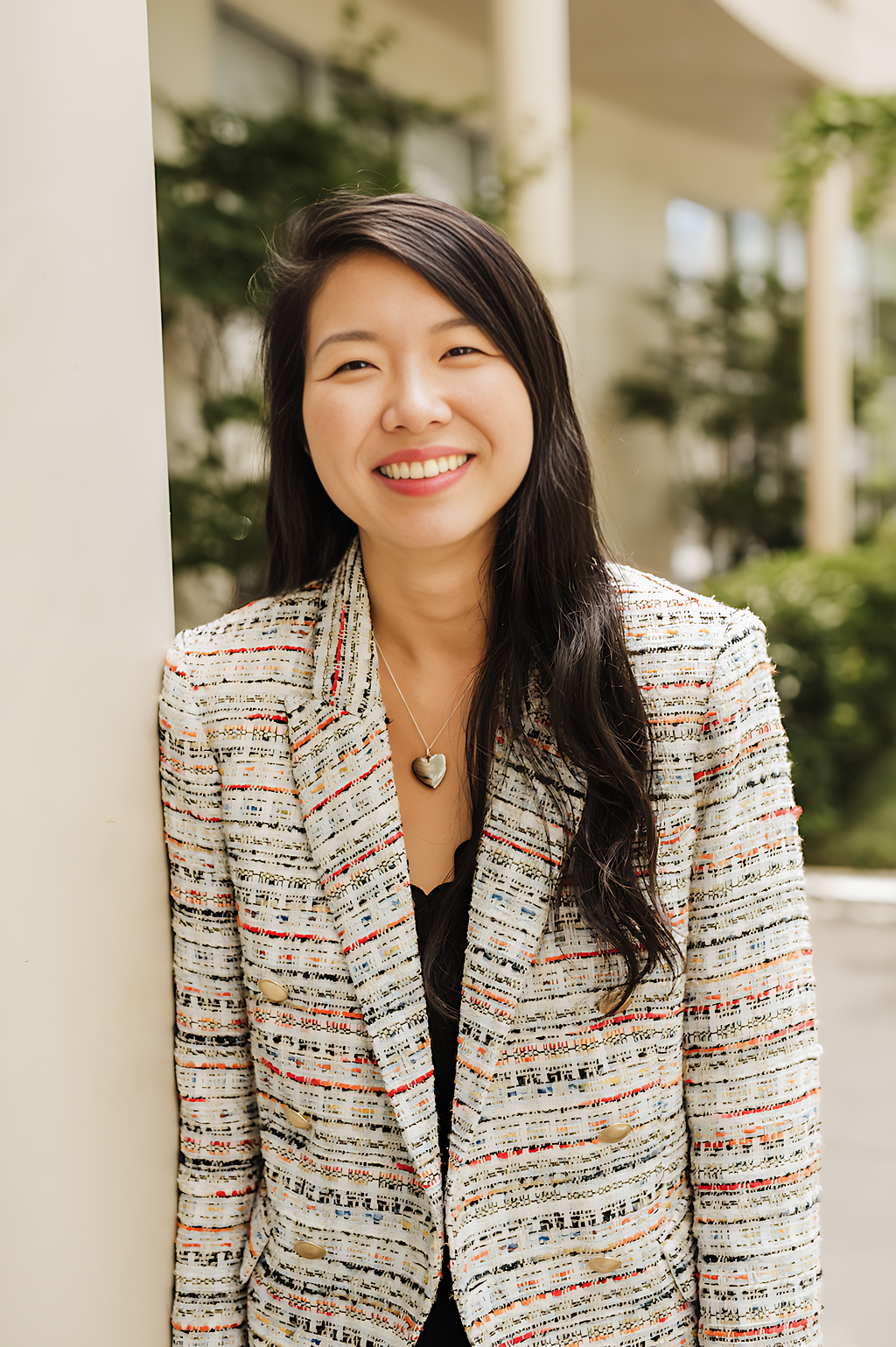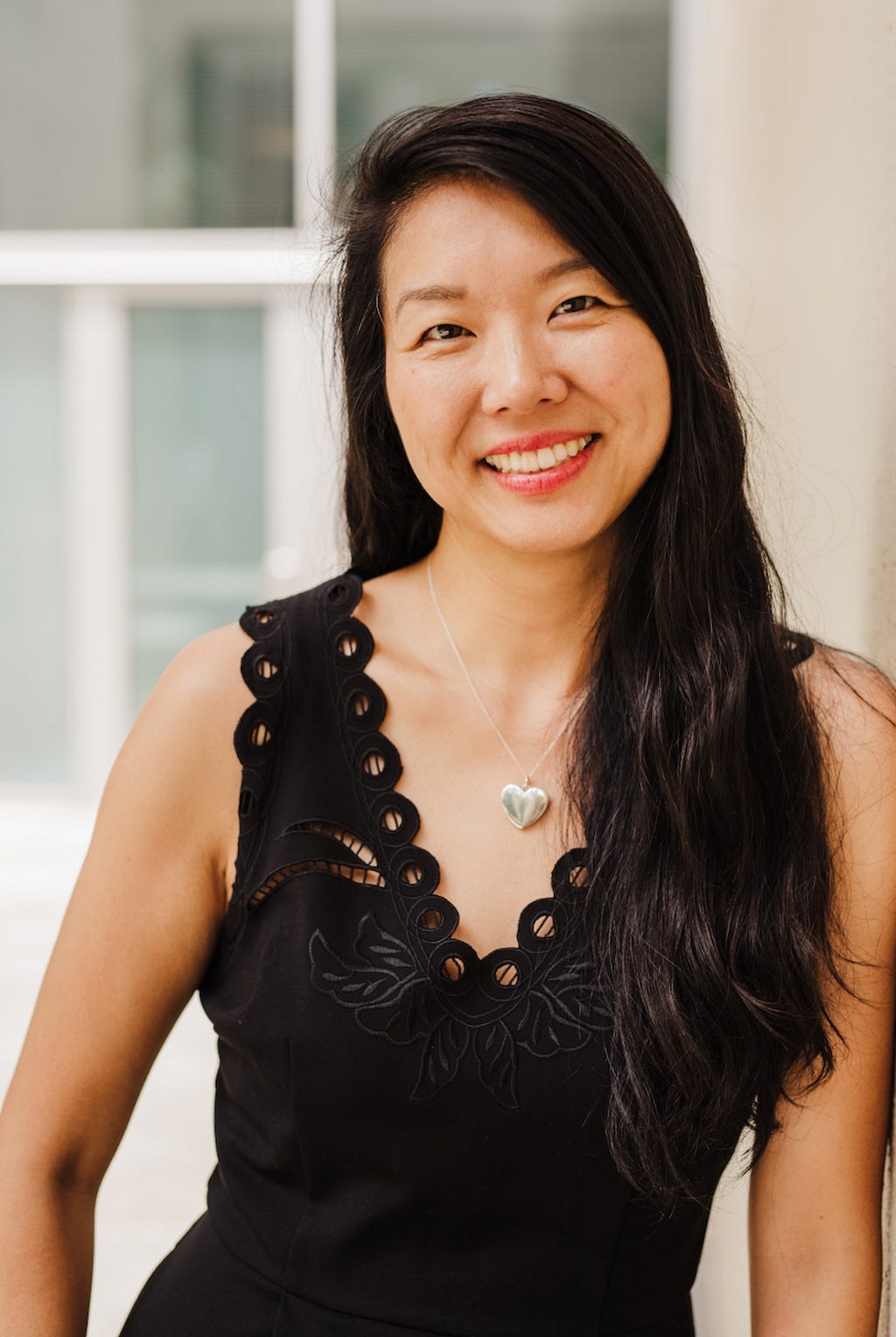
Don’t forget to dream: As the founder of a growing organization, it’s easy to get absorbed in growth, management, and strategy. Yet, this sometimes leads to neglecting the dreaming phase, as I did when conceiving Nomi Network. Setting aside time for big thinking and dreaming is essential for your organization’s well-being.
As part of my series about “individuals and organizations making an important social impact”, I had the pleasure of interviewing Diana Mao.
Diana Mao is president and co-founder of Nomi Network, where she leads the nonprofit in raising awareness about modern slavery and creating safe employment for survivors as well as women and girls at risk. Diana served on the White House Private Public Partnership Against Human Trafficking and is a Presidential Leadership Scholar and New York Academy of Medicine Fellow.
Thank you so much for joining us in this interview series! Can you tell us a story about what brought you to this specific career path?
While I was in college, I went on a microfinance research trip in Cambodia that would change the protectory of my career forever. On the trip, my team and I interviewed a single father of seven children who lived on less than $3 per day. To our shock, he offered his youngest daughter, who was around seven-years-old, to my male colleague for inappropriate purposes. This unsettling moment became a catalyst for my commitment to take action against human trafficking. Additionally, my personal connection to human trafficking and exploitation stems from my father’s brutal imprisonment in a Chinese labor camp due to our family’s prominence during the Communist purge. Because of this, growing up he acted emotionally distant and unsupportive towards me. Through all of my personal experiences, being actively involved in human trafficking prevention has provided me with firsthand insight into the profound impact of exploitation and trauma on families, even when that trauma is indirectly related.
Can you share the most interesting story that happened to you since you began leading your company or organization?
Leading an anti-human trafficking organization for over a decade has allowed me to meet countless survivors, with their stories leaving an indelible mark on my heart. However, a few years ago, I discovered my own family’s traumatic history in a Communist Chinese labor camp, and this revelation deepened my understanding and empathy for survivors and their children. This personal connection has enriched my work and the mission of Nomi Network, driving my commitment to the fight against human trafficking, and reinforcing the positive change we can bring to survivors’ lives.
It has been said that our mistakes can be our greatest teachers. Can you share a story about the funniest mistake you made when you were first starting? Can you tell us what lesson you learned from that?
Comfort isn’t always the best choice, that’s something I learned after visiting a Cambodian village with a team member. I decided to take a minivan back to the city instead of a bus due to the extreme heat. During my journey, the minivan broke down in the middle of nowhere at dusk. Thankfully, we managed to flag down a passing bus, even though neither the driver nor the passengers spoke English. Because of this, we had to call a team member in the city for translation assistance. The local passengers looked at us curiously as we embarked on this unexpected journey, which ended up taking five hours longer than if we had stuck with the less comfortable bus from the start. This comical incident taught me a valuable lesson: the uncomfortable path can sometimes be the shorter one.
Can you describe how you or your organization is making a significant social impact?
Nomi Network stands out among anti-trafficking organizations for our distinctive model of creating a network of support and opportunities in collaboration with the private sector, bridging the gap between survivors of human trafficking and businesses equipped to help them thrive. This approach, conducted at scale, sets us apart from other organizations. Our direct impact, so far, includes over 18,000 women and girls in India, Cambodia and the United States. In 2022, we provided workforce and training to more than 1,500 women and adolescent girls. This is only the start, and I’m excited to see the continuing growth and impact of Nomi Network.
Can you tell us a story about a particular individual who was impacted or helped by your cause?
Through our Adolescent Girls’ Empowerment Programs (AGEP) in India, we’ve had the privilege of working with remarkable girls like Sabnam, a 14-year-old who resides in an area of Bhubaneswar which is surrounded by active sex work and drug abuse. Her father left the family, and her mother, a day laborer, struggles to make ends meet through sporadic work and government rations.
Sabnam’s determination and intelligence led her to Nomi Network’s AGEP program, where she developed a keen interest in child rights. With the guidance of Nomi Network’s trainers, she entered a school debate competition on child rights and clinched the first-place prize. Impressed by her talents, a community leader frequently invites Sabnam to speak about child rights at other youth events and schools. She contributes to her family’s income through the stipends earned from speaking engagements and tutoring. Building a supportive network, Sabnam also secured a scholarship to continue her education at a local private school. Her story is a testament to the transformative power of education and empowerment in challenging circumstances.
Are there three things the community/society/politicians can do to help you address the root of the problem you are trying to solve?
Federal and local governments have the capacity to allocate funds to support survivors and individuals at risk of human trafficking in areas such as education, housing, healthcare, childcare, and social infrastructure. I see an opportunity to implement work permit exemptions for foreign-born survivors as soon as they are identified as victims of commercial sexual exploitation. In addition, companies should be held responsible for paying a living wage and ensuring their products are sourced without the use of slave labor. These measures are crucial steps in the fight against human trafficking and its associated challenges.
How do you define “Leadership”? Can you explain what you mean or give an example?
Leadership, as I see it, means taking ownership over what’s within your immediate control and what extends beyond it across all aspects of your organization. As the president of Nomi Network, my job description may align with the typical responsibilities of a CEO. However, true leadership transcends titles, encompassing a profound sense of accountability for the outcomes of every team within the organization. We operate in challenging regions of South Asia, with poor rule of law and most under-resourced. With a workforce of more than 100 employees including many of whom on the front lines I haven’t met, I bear the responsibility for their performance and development. In my perspective, genuine leadership carries extreme ownership, where we wholeheartedly commit to the success or failure of our teams and the mission we pursue.

What are your “5 things I wish someone told me when I first started” and why. Please share a story or example for each.
- Don’t forget to dream: As the founder of a growing organization, it’s easy to get absorbed in growth, management, and strategy. Yet, this sometimes leads to neglecting the dreaming phase, as I did when conceiving Nomi Network. Setting aside time for big thinking and dreaming is essential for your organization’s well-being.
- What you do is not who you are: As a CEO, your schedule is tightly packed, and there’s an exhilaration in meeting or surpassing KPIs and witnessing growth. It’s simple to sideline family, friends, and spirituality. Remember, you are more than your role: you’re a parent, a friend, a partner — these roles define you.
- Live each day as if it were your last: Don’t delay expressing love, giving praise, or offering words of encouragement. Seize the moment, as if it’s your last, to connect with loved ones and colleagues.
- Dust off disappointment: Leadership involves dealing with people, and unfortunately, people can let you down. Brush off disappointments and continue investing in people without fear.
- Don’t be afraid to fail: Failure is a steppingstone to growth. Fear of failure can hinder innovation and deter you from exploring new ideas. Embrace failure as a valuable part of progress.
If you could inspire a movement that would bring the most amount of good to the most amount of people, what would that be?
Imagine a world where every individual is regarded as an asset rather than a liability. This vision applies to corporate America and extends to the most impoverished regions, like the areas in India where women and girls are often seen as having no value. By recognizing the inherent worth of every human life and placing the highest value on it, we could potentially eradicate slavery and reduce global conflicts.
Can you please give us your favorite “Life Lesson Quote”? Can you share how that was relevant to you in your life?
My late grandmother, who lived to be 108, left me with a powerful lesson: “With much given, much is required.” Her resilience through historic upheavals, including the Japanese invasion of China, the Chinese Civil War, and the rise of Communism had a profound impact on me. Despite enduring such hardships, she maintained hope and consistently found opportunities to show love and kindness to family, friends, and even strangers on the streets. As a new immigrant, she made significant sacrifices to support my education in piano, Chinese language, and volunteer trips abroad. These experiences instilled in me values of self-discipline, service, and, above all, the importance of investing in the well-being of women and girls, shaping who I am today.
Is there a person in the world, or in the US with whom you would like to have a private breakfast or lunch with, and why?
According to the Global Slavery Index, North Korea has the highest prevalence of human trafficking. I would like to have a private meeting with Kim Jong Un to discuss the inhumane status of women and girls in his country. I also want to understand his perspective and agenda so I can make recommendations on how he can reduce the prevalence of human trafficking in his country.
How can our readers further follow your work online?
Readers can learn more about our work and how to get involved on our website, nominetwork.org. They can also follow us on LinkedIn through this link.
This was very meaningful, thank you so much. We wish you only continued success in your great work!
Social Impact Heroes: Why & How Diana Mao of Nomi Network Is Helping To Change Our World was originally published in Authority Magazine on Medium, where people are continuing the conversation by highlighting and responding to this story.
